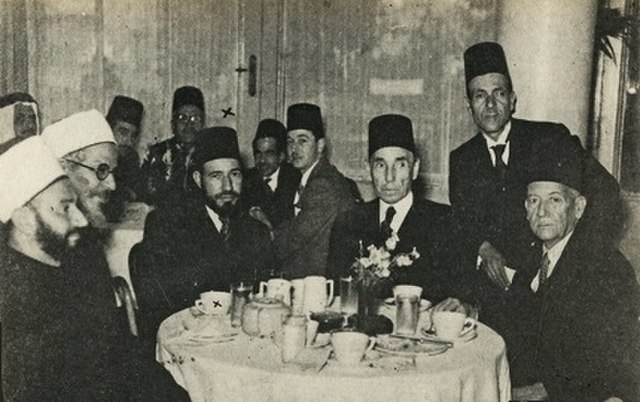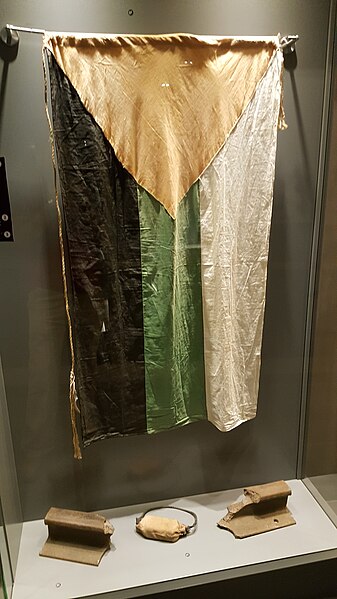Aziz Ali al-Misri was an Egyptian Ottoman military officer of Circassian descent, and prominent political activist and member of the CUP. During the Second Mashrutiya period, and despite himself not being ethnically Arab, he co-founded and led a number of nationalist Arab societies such as al-Qahtaniyya and al-‘Ahd. After falling out with the CUP, he was arrested in February 1914 and sentenced to death by an Ottoman military court, but British pressure led to his release and pardon by the Sultan, and was subsequently exiled to Egypt. T. E. Lawrence brought him to Hejaz to participate in the Arab Revolt, and praised him as "the most striking and remarkable of the whole Arab movement" and "quick and impetuous, yet self-restrained and self-confident," and praised his bravery and leadership abilities.
Aziz Ali al-Misri
Political and religious figures attending a reception for Mohamed Ali Eltaher at the Continental Hotel in Cairo. From left to right: Shaykh Mohamed Sabri al-Din of Hebron, Shaykh Ibrahim Tfayyesh of Algeria, Muslim Brotherhood Supreme Guide Hassan al-Banna, Egyptian Army Chief of Staff Aziz Pasha al-Masri, Palestinian-Egyptian journalist Mohamed Ali Eltaher and Egyptian government minister Abdel Rahman eal-Rafei
Fareq Aziz Ali el-Masry Street (Gisr el-Suez St.), Cairo Egypt.
The Arab Revolt, also known as the Great Arab Revolt, was an armed uprising by the Hashemite-led Arabs of the Hejaz against the Ottoman Empire amidst the Middle Eastern theatre of World War I.
Soldiers of the Sharifian Army carrying the flag of the Arab Revolt in southern Yanbu
The flag of the Arab Revolt in the Martyrs' Memorial, Amman, Jordan.
Lawrence at Rabegh, north of Jeddah, 1917.
Lawrence of Arabia after the Battle of Aqaba.







